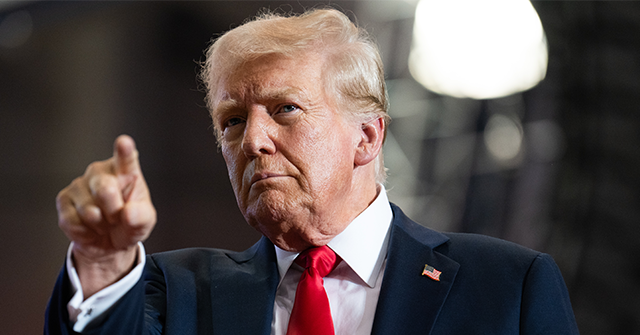The Biden administration’s recent healthcare policies have faced criticism for contributing to rising prescription drug costs, with President-elect Donald Trump and House Speaker Mike Johnson taking a strong stance against Pharmacy Benefit Managers (PBMs). Trump, during a press conference held at Mar-A-Lago, highlighted the detrimental role of PBMs in the pharmaceutical industry, claiming they act as profit-driven middlemen who inflate drug prices for millions of Americans. He vowed to eliminate these middlemen, suggesting that they make more money than the drug companies themselves without providing any real value to the system. This commitment to tackle PBMs aligns with Johnson’s plans to prioritize healthcare reform as part of the end-of-year government spending package, a crucial step before Trump’s inauguration.
In his address, Trump outlined serious concerns about the monopolistic power held by the three largest PBMs—CVS Caremark, Express Scripts, and OptumRx—which dominate the market, managing drug benefits for over 270 million Americans. By effectively controlling access to medications through their formularies, these PBMs influence out-of-pocket costs for patients. This alleged manipulation often leads to patients being compelled to opt for pricier medications, regardless of their actual medical needs. As highlighted by Kevin Duane, a pharmacist from Florida, this system strips both doctors and patients of the choice in medication, as the decisions are governed by what is financially beneficial to the PBMs rather than what is ultimately best for the patient.
Trump’s previous administration made strides towards reforming this broken system, notably through a proposed policy that would have allowed seniors to directly benefit from rebates that drug manufacturers pay PBMs. This plan aimed at redirecting substantial savings back to the seniors who needed them most, challenging the existing structure that provided advantages to wealthy middlemen. Unfortunately, this initiative was undermined by the Biden administration’s repeal of the drug rebate rule under the Inflation Reduction Act, which limited the assistance available to vulnerable seniors struggling to afford their medications.
With a renewed focus on healthcare reform, Trump is expected to reintroduce measures that could restore and even enhance these savings for seniors once he assumes office. Meanwhile, House Speaker Johnson and other Republican allies in Congress are poised to set the groundwork for reforming PBMs as early as this week. They hope to incorporate a critical piece of legislation, the Modernizing and Ensuring PBM Accountability Act (S. 2973), into the spending bill—creating a means to address the problematic incentives that currently favor profits over patient care in the pharmaceutical landscape.
Support for this initiative is gaining momentum, as over 20 conservative organizations have rallied behind the bill, which aims to decouple PBM fees from drug prices. By reforming how PBMs operate—shifting the financial incentives away from inflated drug costs—the legislation seeks to foster a more patient-friendly approach that could significantly lower drug prices for seniors and other Americans. This effort to dismantle the PBM dominance is part of a broader strategy to realign the healthcare industry in favor of consumers, moving towards a system that prioritizes patient welfare over corporate profits.
If Congress can successfully pass this legislation by Christmas, it would mark a pivotal step in addressing the corruption and inefficiencies plaguing the current healthcare system. A victory in enacting reforms to counter the influence of PBMs would not only benefit seniors with reduced drug costs but would also signal a broader commitment to improving America’s healthcare landscape. The proposed strategies underline a critical turning point in healthcare policy, aimed squarely at alleviating the financial burdens faced by everyday Americans, particularly the most vulnerable populations reliant on affordable medication.

